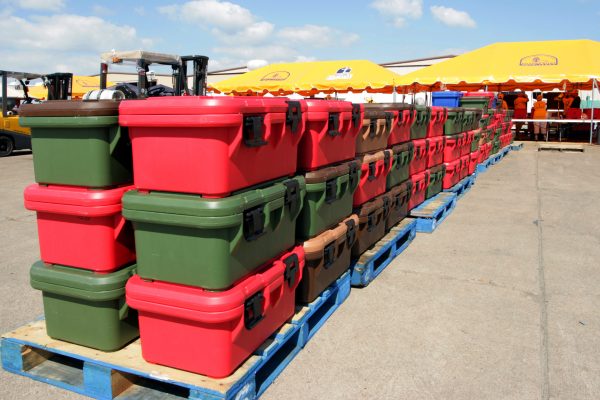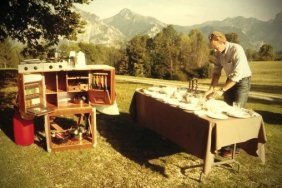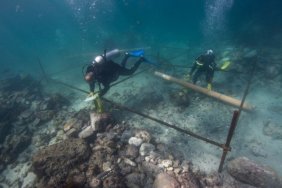Prepping for Armageddon is personal, voluntary and even trendy in the United States, but Germany recently announced plans to require all citizens to stockpile food, water and other essentials.
“Precaution demands that people prepare appropriately for a development that could threaten our existence and cannot be categorically ruled out in the future,” a spokesman for the Interior Ministry told the Frankfurter newspaper Allgemeine Sonntagszeitung.
“The population will be obliged to hold an individual supply of food for ten days,” according to the new “Concept for Civil Defence,” prepared by the Interior Ministry.
The German civil defense plan says the requirement is necessary because — while a national disaster is “unlikely” — preparations are needed in case of a future terror attack or “hybrid” conflict involving cyber warfare, which could damage key infrastructure.
Russia’s military intervention in Ukraine in 2014 — the clandestine seizure of Crimea and support for separatist rebels — has been widely described as “hybrid warfare.”
RELATED: 6 Backcountry Emergency Prep Trips
The German news agency DPA reported that in a crisis civilians might also be required to help direct traffic or provide fuel and accommodations to the military.
Hoarding Like a Hamster
Not everyone is rushing out with grocery carts. Pictures of hamsters flooded social media as Germans adopted the hashtag “Hamsterkaeufe,” which means panic buying or hoarding like a hamster.
A satirical article in newspaper Die Welt headlined “Hamsters are sold out in Germany.” It said the lack of hamsters presented the nation with “an unprecedented humanitarian disaster.”
On its website the German Federal Office of Civil Protection and Disaster Assistance (BBK) gives citizens a survival list for emergencies, enough to last two weeks, including:
- 28 liters (6.2 gallons) of drinking water
- 9kg (10.8 pounds) of bread, noodles, rice, potatoes
- 6kg (12.3 pounds) of vegetables and pulses (preferably pre-cooked)
- 6kg (eight pounds) of fruit and nuts (in jars or tins)
A public health manager with the German Red Cross, Wolfgang Kast, told the broadcaster ARD (in German) that the intense debate about stockpiling showed that “people have become less and less prepared for an emergency.”
“We’ve got accustomed — not least because of the Internet — to having everything available at all times,” he said. He listed as key emergency provisions: water, noodles and tomato sauce, along with any required medicines, a torch (flashlight to Americans), spare batteries and candles.
The German government also stockpiles food – such as eggs, milk powder and beans – at secret locations. Government offices are also prepared to issue food and fuel stamps under a national rationing system in an emergency.
Photo credit: Wikimedia








